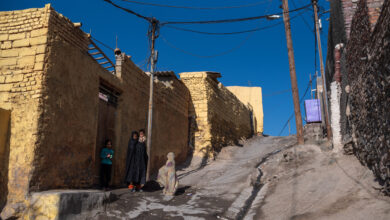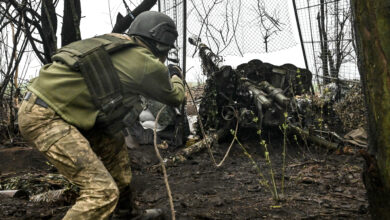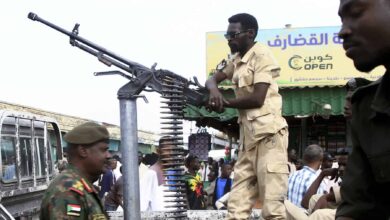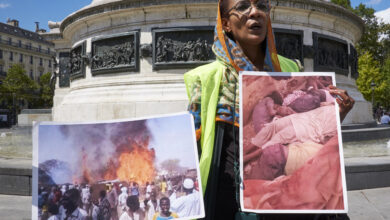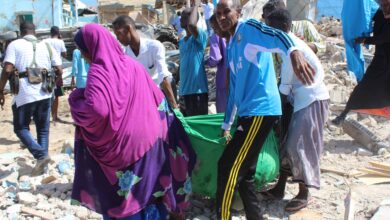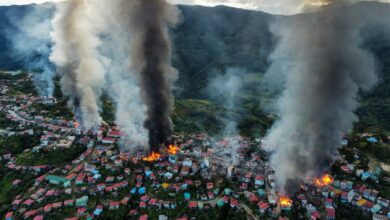One person was killed and six others injured when two convoys operated by U.S. gas giant Anadarko came under attack in northern Mozambique, an area which has been rocked by a spate of violence, the company said Friday.
The convoys were targeted Thursday, February 21 on a road linking Mocimboa da Praia to Afungi bay in Palma, the nerve center of Mozambique’s nascent gas industry following the discovery of huge reserves.
Armed men blocked the road and attacked the convoy with firearms, company sources told AFP, with local media suggesting more than a dozen attackers were involved.
Anadarko said in a statement that it had “received information that a convoy was attacked on the road from Mocimboa da Praia to Afungi at approximately 5 p.m. (1500 GMT).”
“Four people are being treated for non-life-threatening injuries,” it said, without identifying the victims, but adding that “work is under way to account for all personnel.”
“We are still working to gather information and are actively monitoring the situation.”
Anadarko later said there were “two related attacks” around 20 km (12 miles) from an LNG project construction site at Afungi Bay.
“The first involved a convoy where six contract personnel sustained non-life-threatening injuries and were either treated or are receiving treatment, and we have accounted for all personnel,” it said.
“Tragically, the second attack, which involved the firm contracted to construct an airstrip for the project, resulted in one fatality,” it said in a updated statement.
A journalist in Mocimboa da Praia town told AFP that the Mozambican worker, identified by the company as Gabriel Couto, was beheaded.
In the later statement, Anadarko said the construction site would remain on lockdown.
“We also remain in close contact with government authorities to ensure appropriate measures are in place to protect our workforce,” it said.
Anadarko is one of the global companies investing billions of dollars to exploit major gas reserves discovered off Mozambique’s northeastern coast.
Anadarko last month advertised in the local media for the supply of armored vehicles for use in its northern Mozambique operations.
The company early last year temporarily evacuated workers from the area and halted operations after the U.S. embassy in Maputo issued an alert warning of imminent attacks.
Hardline Islamists have been blamed for several deadly attacks in the Muslim-majority, oil and gas-rich Cabo Delgado province in the past year, stoking unrest just as Maputo pushes ahead with exploration efforts.
The Islamist fighters have since October 2017 terrorized remote communities in the gas-rich region, killing about 200 people and forcing thousands from their homes.
They belong to a group originally known as Ahlu Sunnah Wa-Jama – Arabic for “followers of the prophet” – but commonly referred to by locals and officials as “Al-Shabaab,” although it has no known link to the notorious Somali jihadist group of the same name.
Researchers have said the Ahlu Sunnah Wa-Jama leadership has links to Islamist groups based in Tanzania, Somalia, Kenya and in the Great Lakes region, where some also received training.
The group is suspected to be behind the killing of 12 people in Mocimboa da Praia on January 12, and eight others in nearby Ulumbi and Nailwa week earlier.
On February 8, seven people were killed and their bodies cut to pieces in a suspected Ahlu Sunnah Wa-Jama attack in the village of Piqueue near Palma.
In December, prosecutors named three men, including South African Andre Mayer Hanekom, among leaders of the group, charging them with murder, crimes against the state and inciting civil disobedience among a raft of other offenses.
But 61-year-old Hanekom died under mysterious circumstances after being transferred from prison to hospital on January 19. His wife Francis, who had previously rubbished the charges against him as “nonsense,” said that the doctor who admitted him said that his symptoms looked “like poisoning.” His body was repatriated on January 31 for further autopsies.
With reporting from AFP. This post was updated on February 22 to include information about the second attack.



